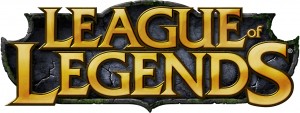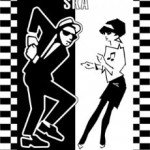About the Interviewed: Jared is a sophomore at the University of Southern California, studying Finance. At the time of this interview, he is also my roommate. His ethnic background is distinctively Chinese, and his parents are first-generation American immigrants. He is 20 years old.

At this point of the interview, I highlighted upon my roommate’s love of League of Legends, a massively popular online computer game.
Jared: “League of Legends is an extremely popular game. People play it all over the world. You play it by choosing a hero and joining a team. You have to help your team defeat the other team. It’s pretty simple.”
I ask him about any slang words or unique vernacular he may have encountered while playing such a globally accessed game.
Jared: “Sure. There’s a ton of humor and inside jokes between people who play the game. Internet memes and things like that are pretty popular on there. Aside from basic things like, LOL and WTF, League has other things. A few of the more recent ones- one of them is like, BM, which stands for Bad-Mannered, it’s like when you do things out of line, or sabotage the team, that’s what BM means.”
I ask him if it came about as a result of cooperative play.
Jared: “Yeah pretty much. Another one is ‘GG, no RE’, I don’t know if you’ve heard that, it means “Good Game, no Rematch”, if you want a rematch, you just type RE.”
I ask if he thinks that these phrases came from the community or the people who made the game.
Jared: “They’re probably from the community – thousands of people play the game everyday. There’s actually a meme going around right now – LOMO. There was a guy on one of the Chinese teams – Vasili – instead of typing L.M.A.O. [Laughing My Ass Off] he kept typing L.O.M.O, so people have been saying LOMO a lot lately.”
Here, I ask Jared if he thinks that League’s multi-regional nature contributes to the evolution of these slang terms and jokes.
Jared: “Totally, yeah, It’s always changing.”
Summary:
Players of the popular online game “League of Legends” has developed a number of slang terms and abbreviations as a response to the rapidly evolving culture of the game.
Games like “League of Legends”, that have large, active global communities, are sources of evolving culture. In order to make the game more efficient, players invented terminology to keep things fluid – terminology that can be recognized almost universally, from players in America to players in Korea. The Internet is full of subcultures such as this, but League’s mass popularity ensures that its culture is always on the move.



